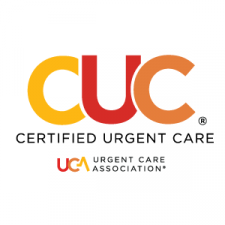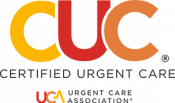Speed Up Recovery: Identify Cold, Flu, or Covid Symptoms
Both the common cold and the flu stem from viral respiratory infections. Despite sharing similarities, they also have significant differences.
Exploring the Common Cold
The common cold is usually a mild illness caused by many different viruses, making it very common worldwide. Symptoms often include a runny nose, sneezing, coughing, sore throat, and congestion. Colds typically start with mild symptoms that worsen over a few days. They don’t usually last long and can be managed with medications. Colds are generally not considered severe medical conditions.
Understanding Influenza: The Flu
Influenza, commonly known as the flu, is caused by a specific virus type and is typically more severe than a cold. Flu symptoms are similar to cold symptoms but can also include fever, body aches, extreme fatigue, and a dry cough. The flu can be very dangerous and sometimes fatal. Symptoms of the flu often come on suddenly and can be pretty debilitating.
The critical difference between a cold and the flu lies in their severity. Colds are generally less severe, with milder symptoms, while the flu can bring about more intense symptoms and may lead to severe complications.
Both colds and the flu spread through tiny airborne droplets and contact with contaminated surfaces or infected individuals.
Understanding COVID-19
COVID-19, caused by the novel coronavirus SARS-CoV-2, is a respiratory illness that has significantly impacted the world. Symptoms can range from mild to severe and may include fever, cough, shortness of breath, fatigue, loss of taste or smell, and body aches. In severe cases, it can lead to pneumonia, respiratory failure, or death.
Unlike the common cold or flu, COVID-19 symptoms can appear 2-14 days after exposure to the virus. Some individuals may remain asymptomatic but still transmit the virus to others. The virus spreads primarily through respiratory droplets produced when an infected person coughs, sneezes, talks, or breathes.
Preventive measures such as wearing masks, practicing good hand hygiene, maintaining physical distance, and getting vaccinated are crucial in reducing the spread of COVID-19 and protecting public health. Prompt testing, isolation, and medical care are recommended for individuals experiencing COVID-19 symptoms or those exposed to the virus.
Treatments for Colds, Flu, and COVID: Know the Differences
Colds, flu, and COVID-19 need different treatments because they come from different viruses.
Colds, caused by many viruses, are managed by easing symptoms. Rest, fluids, and over-the-counter medicines like pain relievers and decongestants help.
Treating the flu is unique because it comes from a different virus. Rest, fluids, and over-the-counter medications work for most, but high-risk folks might need antiviral medications or flu vaccines for prevention.
COVID-19 treatment involves a range of approaches depending on the severity of symptoms. Mild cases may require home isolation, rest, and symptom management, while severe cases may need hospitalization, oxygen therapy, and specialized medications. Vaccination and preventive measures like mask-wearing and social distancing are crucial in reducing COVID-19 transmission.
Is Urgent Care Right for Cold or Flu Symptoms?
Wondering if you should head to urgent care for what feels like a cold or flu?
If you’re dealing with typical cold symptoms like a nagging cough, sore throat, runny nose, and congestion, it’s worth considering a visit to urgent care.
While colds are often mild, they can sometimes signal something more serious. At Thibodaux Regional Urgent Care, a provider can assess your condition and recommend appropriate treatment. Depending on your symptoms, you might receive medications, home remedies, or a referral to a specialist for further care. This ensures your cold gets the attention it needs.
For flu-like symptoms, urgent care is your go-to. Our centers in Thibodaux, Houma, and Gray are well-equipped to diagnose and treat such illnesses, offering faster and more affordable care than the emergency room. You’ll get a diagnosis, treatment plan, and advice on symptom management. Some centers even provide medications to ease flu severity and duration.
Depending on how you’re feeling, our medical team might suggest a follow-up if you don’t improve.
Remember, the flu can lead to serious complications like pneumonia or bronchitis, especially for vulnerable groups like the elderly or those with health conditions. If you notice high fever, trouble swallowing, persistent severe cough, or ongoing headaches and congestion, don’t wait—visit Thibodaux Regional Urgent Care promptly.
We’re here every day, including weekends, for your urgent medical needs. To speed up check-in, check which insurance we accept. For details, contact us at Thibodaux: 985.803.8383, Houma: 985.709.0136, or Gray: 985.493.4944.



